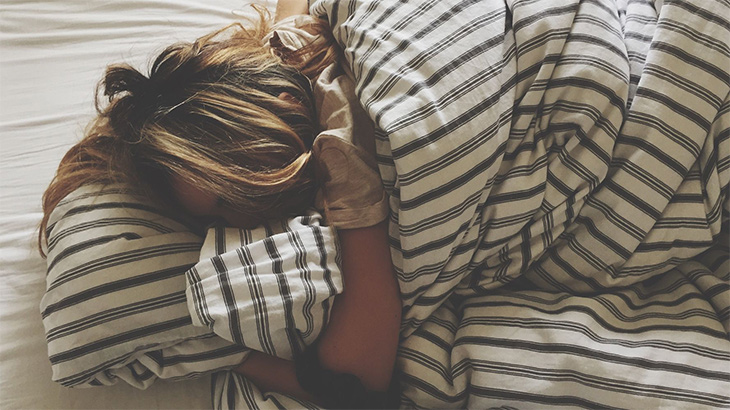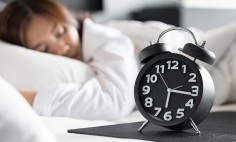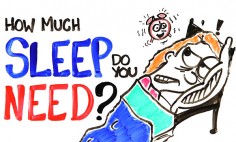Sleep affects almost every system and tissue in the body: the heart, the brain, metabolism, immune function, mood and more. While the biological purpose of sleep remains a mystery, it is a vital process that is essential for life. In fact, scientists have never found a truly sleepless creature.
Despite the importance of good sleep, up to 70 million people in the United States have a chronic sleep disorder that impacts their day-to-day functioning and health.
Many people turn to cannabis and CBD to naturally improve their sleep. What does it look like to use cannabis or CBD to sleep better?
It could be a young woman plagued with years of poor sleep who finds that a few puffs of cannabis flower vapor help her fall asleep faster. Or a person living with PTSD who discovers that cannabis and CBD dramatically improves the quality and quantity of his sleep. Or a septuagenarian who buccally ingests THC after dinner to maintain a healthy circadian rhythm as she ages.
Cannabis as a sleep aid
Cannabis has a long history of being used as a sleep aid dating back to at least 1000 B.C.E. In the 1920s, medical encyclopedias described cannabis as a sedative and a hypnotic. A sedative is a drug that acts as a central nervous system depressant, lowering anxiety and stress. A hypnotic is a drug that directly induces sleep.
With such a long history as a natural sleep aid, it is unsurprising that many people today still use cannabis to improve their sleep. According to a 2019 survey of 1000 adult users at a cannabis dispensary in Colorado, 74% reported taking cannabis to promote sleep. Of that group, 84% found cannabis “very or extremely helpful” in helping them sleep, and most people reported that they stopped or significantly reduced their sleeping pill use.

What does the science say about sleep and cannabis?
According to Dr. Ethan Russo, a cannabis doctor and one of the world’s leading cannabis researchers, “Almost every clinical study that’s looked at cannabis-based medicines has shown an improvement in sleep.” To say otherwise, he said, is “to be staring in a deep hole — a deep hole of ignorance.”
Sleep has been traditionally described in two parts: rapid eye movement (REM) and non-rapid eye movement (NREM). Humans dream during REM sleep. NREM is divided into three stages, progressing from light sleep to deep sleep—designated as slow-wave sleep (SWS). SWS is the stage at which your body repairs itself and regrows tissue , whereas REM sleep has been associated with cognitive performance and learning. All stages of sleep seem to be important.
Due to federal prohibition on cannabis, there is not enough research into cannabis and sleep to state any firm conclusions. For example, a widely cited study from 2008 indicates that cannabis decreases REM sleep and increases SWS sleep.
However, these findings have not been consistently replicated. A literature review published by the National Drug and Alcohol Research Center in Australia concluded the opposite: “the acute effects of cannabis use on sleep appear to be a disruption to the sleep cycle reflecting a reduction in time spent in slow wave sleep and an increase in time spent in rapid eye movement sleep.”
According to Joseph W. Anderson , a sleep specialist and polysomnographic technologist, when we ask how cannabis affects sleep, we are combining two great unknowns: “an insufficiently studied drug and a biological enigma.”
While we cannot state definitively how cannabis affects sleep architecture, it is widely known that cannabis helps many people fall asleep.
How Does Cannabis Affect Sleep?
Studies have shown that cannabis alters the sleep-wake cycle, increases the production of melatonin, and can “inhibit the arousal system by activating CB1 receptors in the basal forebrain and other wake promoting centers.”
THC may decrease sleep latency—the time it takes you to fall asleep. But chronic use has been associated with impaired sleep quality over the long term. For people suffering from anxiety, pain or PTSD, cannabis has been shown to improve sleep. Additionally, there is evidence that cannabinoids may have some short-term benefit for sleep apnea.
Endocannabinoid System and Sleep
Sleep is a critically important biological function that involves an organism becoming much less responsive to stimuli. The natural sleep-wake cycle is determined by the circadian rhythm. The circadian rhythm is a 24-hour biological clock that allows organisms to perceive daily environmental cues and respond to them.
The circadian rhythm has been observed in plants, animals, fungi and cyanobacteria. While the circadian rhythm is self-sustained and maintained by endogenous processes, it is also entrained by cues called zeitgebers—literally, “time giver” in German. The most important zeitgeber is the cycle of light and dark, but temperature, melatonin and various other stimuli can also entrain the circadian rhythm.
The suprachiasmatic nucleus (SCN) is the “internal clock” that serves as the endogenous control center for circadian rhythms. Lesions to the SCN eliminate a range of circadian behaviors in mammals, including sleep-wake cycles. The SCN combines zeitgebers like light or feeding with internal messengers like melatonin to maintain consistent circadian rhythms and “to entrain to the 24-hour day.”
The endocannabinoid system (ECS) plays a role in circadian rhythms and regulating the sleep-wake cycle. While scientists have not teased out the exact role of the ECS in sleep, it seems to involve the CB1 receptor.
THC exerts its psychoactive effects through binding to the CB1 receptor. CB1 receptors are found in the SCN, which encouraged scientists to study the interaction between CB1 receptors, light and the SCN. They determined that cannabinoids “do alter the ability of the SCN to entrain to environmental light cues, but mainly through modulating GABAergic tone.” The majority of sleep-promoting drugs target the GABA receptor.
GABA is “the main inhibitory neurotransmitter” of the central nervous system and plays an important role in sleep. Research indicates that “GABAergic drugs have overlapping effects with cannabis,” although there is not enough research to state firm conclusions about the role of GABA in cannabinoid effects.
Cannabis Balances the Circadian Rhythm
Fascinatingly, scientists have suggested that cannabis may act as a zeitgeber. As a zeitgeber, cannabis entrains “biological rhythms to facilitate daily sleep periods, and thus may serve as a chronobiotic therapeutic compound for individuals with disrupted circadian function.”
Earlier, we noted that animals with damage to the SCN lose a range of circadian behaviors. However, chronically administering drugs and food in a consistent schedule has been shown to restore circadian rhythmicity in animals with ablated SCN.
A 2013 study examined the relationship between cannabis use and circadian rhythms in humans. In the study, chronic marijuana users wore actigraphy watches (devices that track movement to determine sleep) over a 21-day period.
Data from the study depicted cannabis users as “significantly more entrained to the traditional 24-hour Cosiner model than age-matched, non-using controls.” However, marijuana users did display increased levels of sleep disturbances when compared to non-users.
According to Dr. Matt Roman, a medical marijuana physician, “Marijuana is an effective sleep aid because it restores a person’s natural sleep cycle, which so often falls out of sync with our schedules in today’s modern lifestyle.”
Elderly adults are known to develop disrupted circadian rhythms with age, so cannabis offers a way to entrain the circadian rhythm. Night shift workers or other populations with disrupted circadian rhythms could also potentially benefit from using cannabis as a zeitgeber.
Can Cannabis Improve Your Sleep?
In conclusion, cannabis seems to consistently help people fall asleep faster. Cannabis seems to have varying effects on sleep architecture, and it may act as a zeitgeber, helping one maintain a regular circadian rhythm. In situations where sleep is disturbed due to anxiety or pain, cannabis could alleviate these symptoms and improve sleep. But consistent, long term use seems to be associated with sleep disturbances.
Jointly can help you dial in how you consume cannabis and CBD so that you can sleep better, naturally.
Use Jointly to Sleep Better with Cannabis and CBD
Jointly is cannabis wellness app that teaches you how to achieve your wellness goals with cannabis and CBD.
Jointly allows you to track and record your CBD and cannabis consumption, including the dose, time of use, cannabinoid profile and various other factors that can influence your experience. As you track your cannabis consumption on Jointly, you will learn about the 15 factors that can impact your cannabis experience and how to eliminate side effects.
Perhaps you will discover that you sleep best when you vaporize whole flower cannabis after you have worked out and with some food in your stomach.
When you use Jointly, you are rating how well a product helped you achieve your wellness goal. Over time, your average ratings should go up as you optimize how you consume cannabis and CBD.
Finding Cannabis and CBD Products for Improving Sleep
Jointly’s Product Finder feature allows you to look up legal, licensed cannabis and CBD products in your state based on your wellness goals. Select Improve Sleep and see how other users like you rated a product on a scale from 1-10, based on how well it helped them sleep.
Download the Jointly app on the App Store or the Google Play Store to get started on your cannabis wellness journey.















